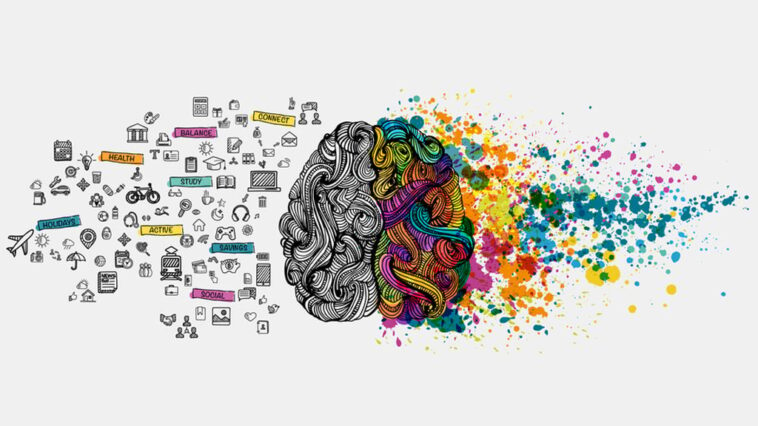In our ceaseless quest for physical health and wellbeing, we often overlook a crucial aspect of our lives: our mental health. The mind is the command center for our emotions, decisions, and actions, and when its health is compromised, the ripple effects can touch every corner of our lives. In the context of this article, ‘mind over matter’ doesn’t mean mental health problems are simply a matter of willpower, but rather that the state of our mind can profoundly influence both our perception of the world and our ability to navigate it. Prioritizing mental health is not a luxury, but a necessity, for unaddressed mental health issues can lead to devastating outcomes, from professional setbacks to personal crises.
The Foundation of Wellbeing
Mental health is the bedrock upon which we build our lives. Like the foundation of a house, if it’s shaky, the entire structure is at risk. When our mental health falters, so does our capacity to manage stress, relate to others, and make sound decisions. It’s at this juncture that problems often multiply, creating a domino effect of negative consequences. For instance, a neglected anxiety disorder can make day-to-day tasks seem insurmountable, resulting in job performance issues or avoidance of social interactions, which are vital for a balanced life. When it comes to our overall wellbeing, mental health is as critical as physical health.
A Ripple in the Pond

The impact of mental health issues extends far beyond the individual. Just as a single ripple can disturb the entire pond, a person’s mental health struggles can affect their family, friends, and even their community. It’s well-documented that conditions such as depression and anxiety can strain relationships, potentially leading to isolation. This, in turn, creates a feedback loop, exacerbating the individual’s mental health challenges and further affecting their social and occupational functioning. It’s in everyone’s best interest to view mental health care as a collective priority, promoting an environment where seeking support is normalized and encouraged.
The Economic Imperative
From an economic standpoint, the cost of neglecting mental health is staggering. Lost productivity, healthcare expenses, and the toll on social services are just the tip of the iceberg. Employees grappling with untreated mental health issues are more likely to miss work or underperform, leading to a significant loss in productivity. This not only affects the bottom line of businesses but also impacts the economy at large. Prioritizing mental health is not only a compassionate choice but a financially sound one, ensuring that individuals can contribute to their fullest potential.
The Value of Professional Help
Acknowledging the necessity of professional help is fundamental to addressing mental health concerns. Seeking the assistance of a mental health professional does not equate to an admission of weakness but rather an act of self-care and strength. It’s a myth that only those in bustling metropolises have access to quality care; many capable professionals are available across various settings. For instance, a Plano psychiatrist provides the same level of expertise and compassionate care as one based in Chicago or Houston. The value of such help is immeasurable, offering tailored strategies and support that can guide individuals back to wellness without derailing their daily lives. Engaging with a professional can often be the first step toward reclaiming one’s mental health and overall quality of life.
The Stigma Barrier
Despite the known benefits of mental health treatment, the lingering social stigma remains a formidable barrier. Misconceptions and societal judgments can deter individuals from seeking help. It’s essential to dismantle these barriers by normalizing mental health conversations and highlighting the courage it takes to reach out for help. When society as a whole begins to view mental health care as a routine part of overall health maintenance, just as regular as a dental check-up or a physical examination, we will see a shift in attitudes and, consequently, in access and outcomes.
Prevention and Early Intervention

The adage ‘prevention is better than cure’ is profoundly true when it comes to mental health. Early intervention can prevent problems from escalating and can make a substantial difference in long-term outcomes. Education about mental health should start early, equipping individuals with the knowledge to recognize the signs of mental distress in themselves and others. This proactive approach can reduce the severity and duration of mental health issues and, in some cases, can prevent them from developing at all.
Embracing Technology Mindfully
Technology and social media shape our mental health in profound ways. They offer unprecedented connectivity, yet they can also foster feelings of isolation and inadequacy. To harness technology for our mental wellbeing, we must be intentional in our use. This includes setting boundaries around screen time, engaging in digital detoxes, and curating our social media feeds to minimize exposure to harmful content. Incorporating apps that promote mindfulness and mental fitness can be beneficial, as long as we remain mindful of the time spent on them.
The Dual-Edged Sword of Social Media
Social media platforms can be a source of support and community. However, they can also contribute to anxiety and depression. Being selective about who and what we follow, along with fact-checking information to avoid misinformation, can protect our mental health. Encouraging discussions around mental health on these platforms can also break down stigmas and foster a more supportive online community. Through awareness and responsible action, we can foster a healthier society that sees and supports the whole person.

Conclusion
Our mental health is a vital component of our lives, influencing our happiness, productivity, and relationships. Prioritizing its care is not a matter of debate but an imperative that we must embrace with urgency and commitment. By fostering environments that support mental wellness, promoting early intervention, and dismantling stigma, we can ensure that individuals do not have to face the burden of mental health issues alone. In doing so, we pave the way for healthier, more resilient communities where every individual has the opportunity to thrive, both mentally and physically.




